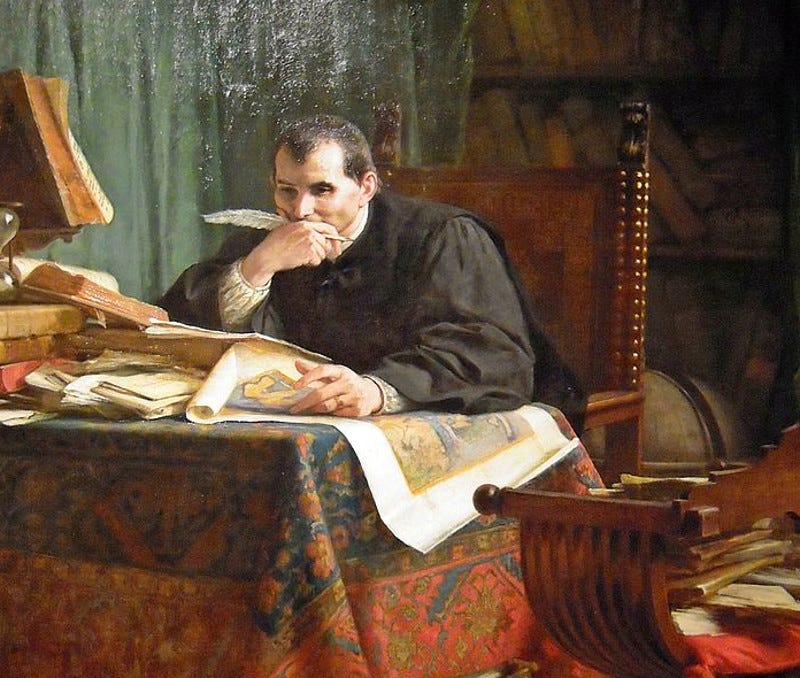The Cynicism Trap
When cowardice masquerades as wisdom
In 1866, Fyodor Dostoevsky published his novel Crime and Punishment. In doing so, he let loose the greatest cynical character the literary world has ever seen.
That character’s name is Rodion Raskolnikov. He is an impoverished student living in St. Petersburg. He is a sick man. He is suffering from intense isolation and prolonged poverty. He lives in a hole of an apartment not much different from a dusty closet. Slipping in and out of delirium, the troubled soul writes an article. In that article he expresses his idea that extraordinary people, such as Napoleon, are “allowed” to do evil things for the greater good.
One day Raskolnikov decides to put his theory to action. Imagining himself as someone like Napoleon, he murders a pawnbroker. And her sister. She happened to walk in while her family member was catching the ax. He steals a little bit and dips. Unbeknown to him, his fancy article had been published in a popular newspaper a few weeks earlier. A newspaper that a policeman investigating the case happens to read. Raskolnikov’s ensuing fate includes the most profound guilt and psychological torture imaginable.
Poor Raskolnikov had many reasons to be cynical. He lived in genuine squalor. In Russia. In the 19th century. Slow! He saw a terrible amount of corruption and vice. He saw a cold world.
Perhaps you too, reader, have reasons to be cynical. Because of some experiences. Because of some people you’ve met in your life. You’ve read Maxims by La Rochefoucauld, or the 48 Laws of Power by Robert Greene. You recognize the truth in these books. You’re also aware of the biological lessons of history, and so on and so forth.
I feel you.
For all intents and purposes this cynicism is better than being naive. But the mid-wit mistake is maintaining too much of this cynicism.
It doesn’t take that much intelligence to be cynical. Some people assume it does. It does not. All you have to do is open your eyes. Oh wait so most people are primarily motivated by their own self-interest? People are vain? People are more emotional than logical? They’re greedy? If an alien was analyzing humanity they would conclude we are a complex collection of highly evolved apes in competing tribes that incessantly inflict incredible violence on each other to further their groups’ interests?
It’s like, okay, and? That stops you from being kind? That stops you from looking for the best in people? From being optimistic or hopeful about anything? Really? Most of the time the people who answer yes, the perpetually cynical people—are just scared people. Uncourageous. Weak. Consider the concept that has been accurately been described as the cynicism safety blanket, as articulated by Chris Williamson:
“Cynicism is a guarded response which sets yourself up against disappointment.
Its role within the system is to protect you against experiencing anything bad. It is a pre-emptive strike against a perceived threat.
If I tell myself that ‘all women are bad’, then I’m less likely to seek a relationship with women and, as a consequence, I’m never going to feel the pain of rejection.
If I tell myself that ‘everything is shit’ or that ‘things will never get better’, then I am excused of ever having to try at anything.
It’s more comfortable to get fatalistic and call it pragmatism.
The cope is framing hope as pathetic and embarrassing and optimism as delusion.
It’s “sour grapes” at an existential level.
If everything sucks, and everyone is horrible, and reality is disappointing and you know that for a fact – then it’s the people acting like things can be better that are dumb, delusional and the problem. The upside of never trying is never having to feel the pain of failure.”
In other words, it is cowardice masquerading as wisdom.
In fictional 19th century Russia, this cynicism is embodied by Raskolnikov chopping someone’s skull. In real 21st century America, it is embodied by the self-satisfied type, the always sitting on the couch type. The guy who stays critiquing without ever creating. Complaining without ever building. Saying why something won’t work without ever trying. Always looking for the worst people.
Avoid this cynicism trap. You may sound smart sometimes. But in the end you lose.
Or, keep being cynical about everything, including this article. You and Raskolnikov will have a wonderful time together. The thing about our dear Rodya, as his very few friends called him, was that he became mad; indeed he had an awful existence. He experienced such brutal anguish, such unimaginable loneliness, such terrible despair. A perpetual nightmarish sorrow fueled by his boundless cynicism.



"I lived through the following spring, at 18, with that knot in my chest, but I struggled against becoming serious. Becoming serious was not the same thing as approaching the truth, I sensed, however vaguely. "
- Norwegian Wood, Haruki Murakami
This line always stuck with me, and is very much in the same vein as "the cynicism trap". Murakami seems to suggest that there's this pull to cynicism as we turn to adults, as the abhorrent truths we'd be protected from as children and teens comes into full view. Being intelligent means observing these, appreciating them, but disallowing them to nip the heart from you.
"The guy who stays critiquing without ever creating. Complaining without ever building. Saying why something won’t work without ever trying. Always looking for the worst people." - love it.
so what do you think the solution to the cynicism catch is?